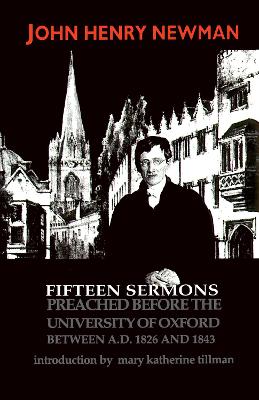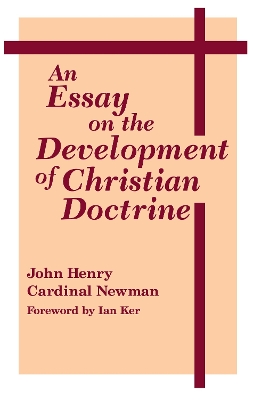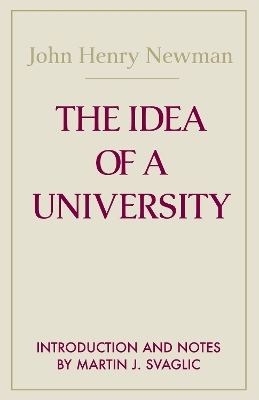Notre Dame Series in Great Books
3 total works
Fifteen Sermons Preached Before the University of Oxford Between A.D. 1826 and 1843
by John Henry Cardinal Newman
Published 27 January 1998
These remarkable sermons by John Henry Newman (1801-1890) were first published at Oxford in 1843, two years before he was received into the Roman Catholic Church. Published here in its entirety is the third edition of 1872 for which Newman added an additional sermon, bracketed notes, and, importantly, a comprehensive, condensed Preface. In her introduction, noted Newman scholar Mary Katherine Tillman considers the volume as an integral whole, showing how all of the sermons systematically relate to the central theme of the faith-reason relationship.
Essay on the Development of Christian Doctrine, An
by John Henry Cardinal Newman
Published 2 March 1994
An Essay on the Development of Christian Doctrine, reprinted from the 1878 edition, "is rightly regarded as one of the most seminal theological works ever to be written," states Ian Ker in his foreword to this sixth edition. "It remains," Ker continues, "the classic text for the theology of the development of doctrine, a branch of theology which has become especially important in the ecumenical era." John Henry Cardinal Newman begins the Essay by defining how true developments in doctrine occur. He then delivers a sweeping consideration of the growth of doctrine in the Catholic Church from the time of the Apostles to his own era. He demonstrates that the basic "rule" under which Christianity proceeded through the centuries is to be found in the principle of development, and he emphasizes that throughout the entire life of the Church this principle has been in effect and safeguards the faith from any corruption.
"The Idea of a University [is an] eloquent defense of a liberal education which is perhaps the most timeless of all [Newman's] books and certainly the one most intellectually accessible to readers of every religious faith and of none. . . . [O]nly one who has read The Idea of a University in its entirety, especially the nine discourses, can hope to understand why its reputation is so high: why the first reading of this book has been called an 'epoch' in the life of a college man; why Walter Pater thought it 'the perfect handling of a theory'; why the historian G. M. Young has ranked it with Aristotle's Ethics among the most valuable of all works on the aim of Education; or why Sir Arthur Quiller-Couch told his students at Cambridge that 'of all the books written in these hundred years there is perhaps none you can more profitably thumb and ponder.'" -from the introduction by Martin J. Svaglic


